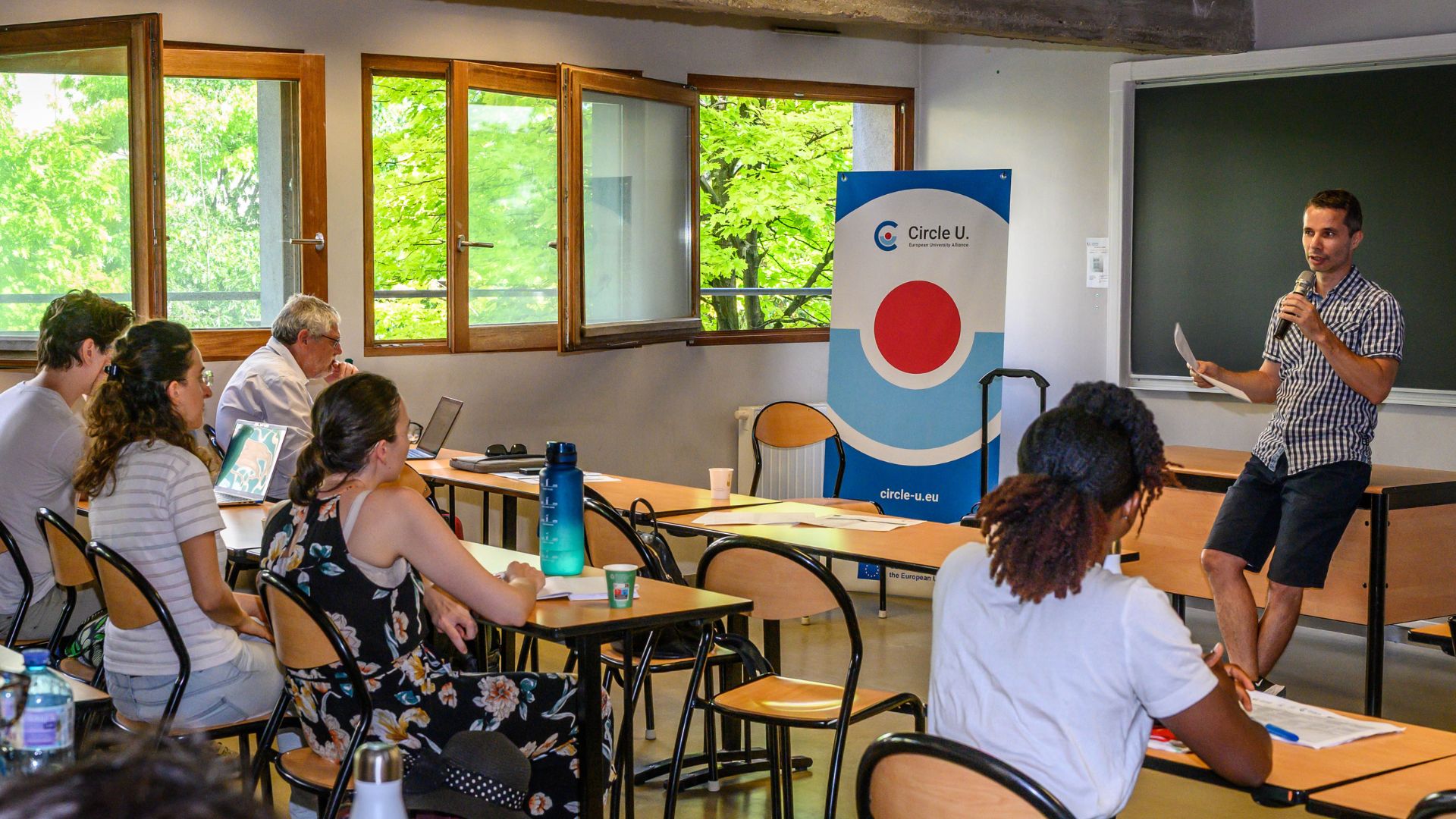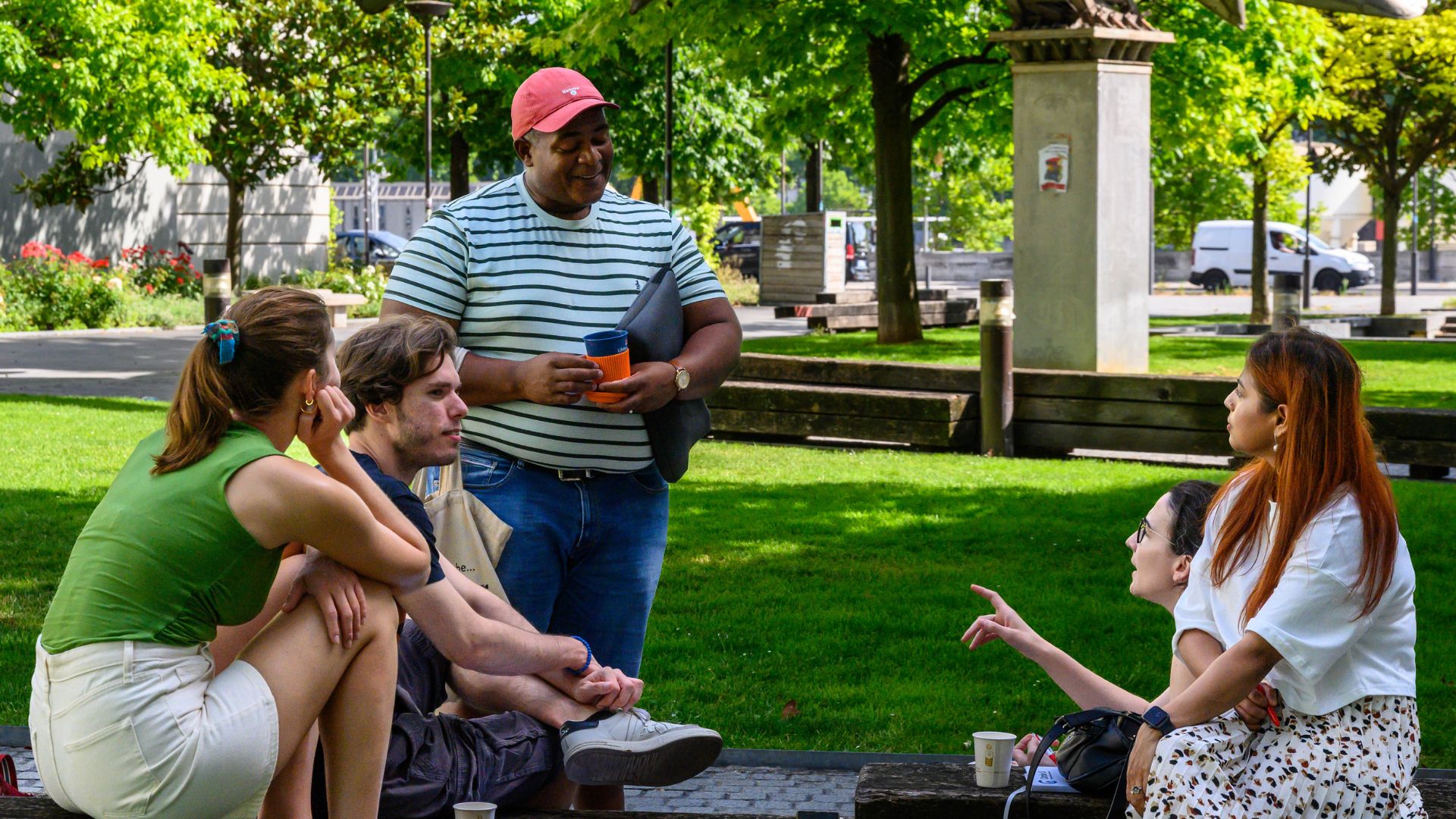ECTS
120 crédits
Niveau d'études visé
BAC +5 (niveau 7)
Durée
2 ans
Faculté
Faculté Sciences & Faculté Sociétés et Humanités
Langue des enseignements
Anglais
Présentation
General cog-SUP organization
The master’s student must register to one of the tracks. These tracks ensure the acquisition of genuine expertise in the concepts, methods, and techniques specific to each discipline, enhancing the clarity of skills associated with the diploma. The program establishes a common cultural foundation from the first year (M1) through a core curriculum and introductory courses to the different disciplines. In the second year (M2), the majority of courses are fully interdisciplinary and open to students from all tracks. Our goal is to cultivate cognitivists equipped with both robust disciplinary expertise and a broad interdisciplinary culture, essential elements for fostering meaningful collaboration across disciplines.
Specific to the track Computational Linguistics
The Computational Linguistics track provides comprehensive training in the models and methods of natural language processing, from the linguistic and mathematical foundations of deep neural networks to the applications of large language models for information access, dialog systems, and machine translation. Its position within the cog-SUP Master’s program in Cognitive Sciences, offers a unique gateway to computational psycholinguistics and neurolinguistics, allowing exploration of the interfaces between language, perception, memory and action, with applications in robotics and human-machine interaction. At the end of their training, students will have a thorough understanding of the concepts, methods and techniques of natural language processing and artificial intelligence, and their implementation in advanced language information processing systems.
The courses on offer cover a wide range of topics, from linguistic modeling in phonology, syntax and semantics, to the algorithmic foundations of language processing, speech processing and deep learning – in the first year; the second year offers more in-depth studies in psycholinguistics and computational field linguistics on the one hand, and in more applied fields such as machine translation, text mining, dialogue systems and information retrieval on the other hand. Students can also choose elective courses offered in other Masters programs offered by partner universities, to further enrich and/or specify their knowledge.
The Computational Linguistics track thus offers a unique opportunity to acquire in-depth experimental and modeling expertise in the field of natural language processing, a central theme of generative artificial intelligence, whose applications are having a major impact on the current digital transitions that are transforming our societies.
Students who graduate from this program are likely to take up positions in artificial intelligence research and development teams in the public or private sector (from large international corporations to SMEs and start-ups) and also in data driven linguistics. Their education will prepare them to work effectively in highly multidisciplinary environments.
Admission
Modalités de candidature
Droits de scolarité
National tuition fees are set annually by the Ministry of Higher Education and Research. They are supplemented by compulsory and optional contributions, depending on the student's individual situation.
Contacts
- Secrétariat pédagogique
Dernière mise à jour le 4 décembre 2024
A lire aussi
À l’occasion de la Semaine nationale des Cordées de la réussite 2026, l’Université Paris Cité réaffirme son engagement en faveur de la démocratisation de l’accès à l’enseignement supérieur à travers des actions concrètes, innovantes et ancrées dans les territoires.
Étudiantes et étudiants de l’Université Paris Cité, nous vous donnons rendez-vous le jeudi 19 mars 2026 pour la 2ᵉ édition de cet événement annuel dédié à l’emploi, aux stages et à l’alternance. Près de 30 recruteurs seront présents pour vous proposer des opportunités concrètes et des conseils personnalisés afin de faciliter votre insertion professionnelle. Nouveauté cette année : le Forum des métiers de la transition écologique et de la solidarité vous invitera à réfléchir aux enjeux de l’engagement écologique et solidaire dans le monde du travail au travers de conférence, ateliers et tables rondes.
Vous étudiez à l’Université Paris Cité et vous souhaitez profiter de vos vacances d’été pour renforcer votre CV tout en découvrant un nouveau pays ? Notre université est membre de l’alliance européenne Circle U. et vous permet, à travers son campus ouvert, de candidater gratuitement aux écoles d’été organisées chaque année. Plusieurs thématiques transverses sont abordées comme la Santé Globale, le Climat, la Démocratie ou le Multilinguisme par exemple. Les candidatures sont ouvertes jusqu’au 28 février, renseignez-vous !
Vous êtes doctorant ou doctorante à l’Université Paris Cité et vous souhaitez étendre votre réseau et vos connaissances en Santé Globale ? L’alliance européenne Circle U. vous invite à participer à la nouvelle édition de son école d’été « New avenues for Global Health » qui aura lieu du 6 au 11 juillet 2026 dans les locaux de notre université ! Les candidatures sont acceptées jusqu’au 28 février.







